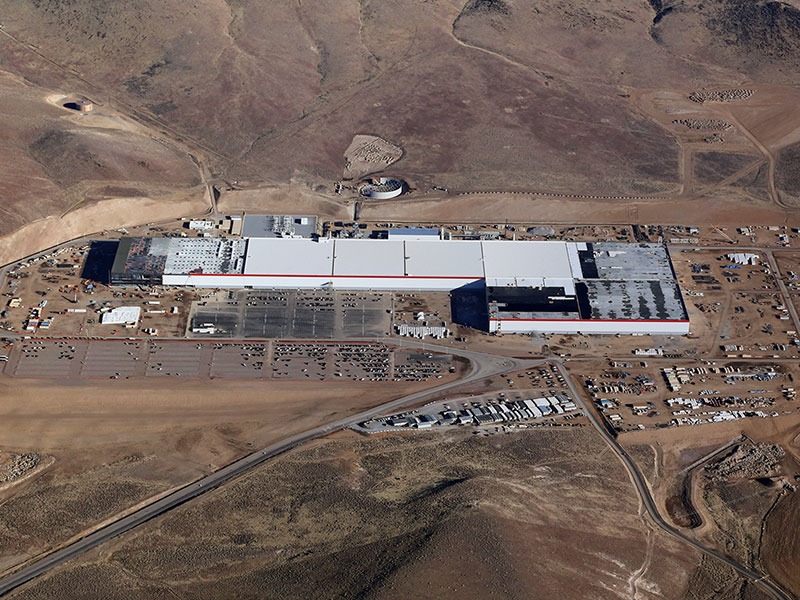EU seeks to rival Asia for electric-battery market supremacy with new fund
The EU plans to offer billions of euros in state and corporate funding to aid the construction of vast battery factories capable of competing with production in the US and Asia

The European Investment Bank has set up a European Fund for Strategic Investments to finance the construction of a 'gigafactory' capable of rivalling Tesla's in the Nevada desert. Image © Tesla
The EU has announced a series of fiscal measures designed to boost the electric-battery industry in the European bloc. Initiatives include the introduction of state aid for electric-battery research and a multibillion-euro fund for companies to build giant battery factories.
Currently, the European auto industry relies heavily on batteries from Asia, which produces around 80 percent of the global supply. The EU, in comparison, contributes just four percent. Brussels is concerned this dependence will hold EU companies back in the race to build mass-market electric vehicles.
Maroš Šefčovič, Vice President of the European Commission’s Energy Union, told the Financial Times: “We know very clearly that the future is electric and we simply have to catch up with this [battery] technology. You cannot develop new models or high-quality cars if you do not master the skills, the innovation and research link[ed] with batteries.”
Brussels is concerned Europe’s dependence on Asia for batteries will hold EU companies back in the race to build mass-market electric vehicles
Much of the capital will be made available through the EU’s Horizon 2020 fund, with €200m ($231.8m) set aside for battery projects and an additional €800m ($927.3m) available to finance demonstration facilities. Individual EU countries will be permitted to finance 100 percent of their research with the fund, provided some cross-border initiatives are implemented. Some €22bn ($25.5bn) of funding has also been made available for specific regions looking to promote the industry.
For private corporations, the European Investment Bank has set up a European Fund for Strategic Investments to finance the construction of a ‘gigafactory’ capable of rivalling Tesla’s in the Nevada desert. According to Šefčovič, there are now 260 companies involved across the battery supply chain, while four large groups have expressed an interest in building the gigafactory.
Previously, Europe has been held back in the battery fabrication stage by a lack of raw materials. To combat this, the EU plans to recover minerals by recycling old electronics. It has also begun to map deposits of cobalt, lithium, graphite and nickel across the European bloc.
The announcement of this funding is not only a strategic trade decision for the EU, but also a commitment to developing more ecologically friendly transportation options. No doubt it will be welcomed by climate campaign groups and auto manufacturers alike.













